Oh no! Your dog accidentally gobbled down a grape on the floor! Is he going to be okay?
Knowing which fruits and vegetables are safe for dogs to consume is crucial since many human foods, while often suitable for dogs, can be extremely toxic or even fatal. After all, just because something is good for you doesn’t automatically indicate that your dog can eat it as well.
Dogs are omnivores, so although they occasionally like fruits and vegetables as treats, they don’t actually need to consume them. Giving dogs the wrong foods to consume might lead to future health problems, and in the worst instance, even death, as dogs process food differently than humans do.
Continue reading to learn which fruits and veggies you should avoid and which you may share in moderation.
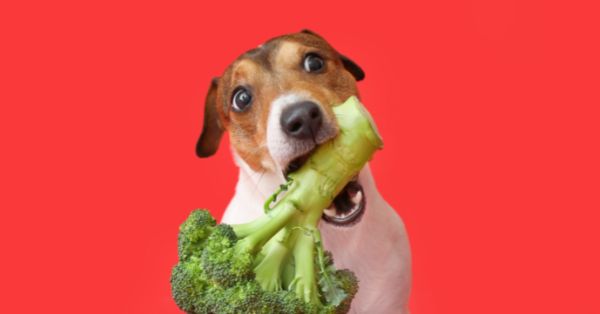
Fruits & Veggies Dogs Can Eat
1. Apples
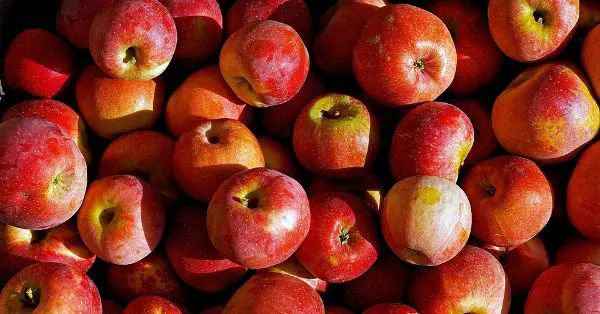
Yes, dogs can consume apples. Just be sure you first remove the core and seeds to avoid them being a choking hazard. For your dog, apples are a great source of fiber, vitamins A and C. They are also an ideal snack for older dogs since they are low in protein and fat.
2. Bananas
Yes, dogs can eat bananas safely. In fact, bananas are a fantastic low-calorie treat for dogs packed with lots of potassium, vitamins, fiber, copper, and biotin. Do note that bananas are high in sugar therefore, they should be given in moderation as a snack and not in the main diet.
3. Blueberries
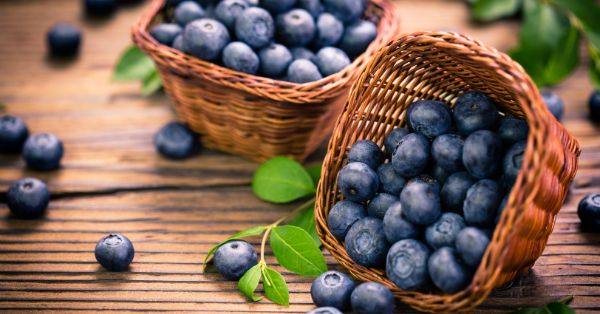
Yes, dogs can eat blueberries. Antioxidants, which are found in abundance in blueberries, protect both human and dog cells from oxidative stress. In addition, they also contain a lot of phytochemicals and fiber. Freeze some blueberries for a wonderful treat during a warm day and your dog will love you for it!
4. Broccoli
Yes, dogs may safely consume broccoli in very little amounts when given it as a treat. It has a low fat content and is high in fiber and vitamin C. Broccoli florets, however, contain isothiocyanates, which in certain dogs can cause mild to possibly severe stomach discomfort. In addition, broccoli stems have a history of obstructing the esophagus.
5. Brussels Sprouts
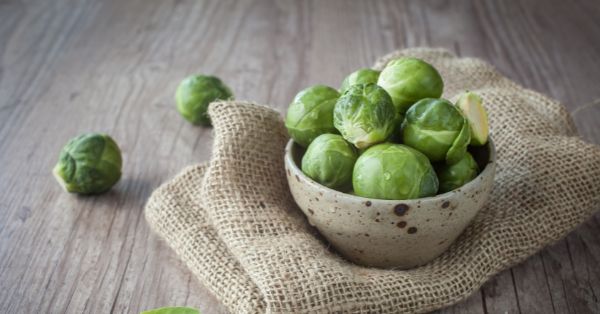
Yes, dogs can eat Brussels sprouts. The minerals and antioxidants in Brussels sprouts are healthy for both people and dogs. However, because they might produce a lot of gas, don’t give them to your dog in excess.
6. Carrots
Carrots may be consumed by dogs. In addition to being high in fiber and beta-carotene, which is the precursor of vitamin A, carrots make a great low-calorie snack. In fact , many commercial dog foods contain this orange vegetable, which is very pleasant to crunch on and excellent for your dog’s teeth.
7. Celery
Yes, celery is safe for dogs to eat. This crunchy green snack has vitamins A, B, and C as well as the nutrients required to support a healthy heart and even fight cancer. In addition, celery is said to help dogs with bad breath.
8. Cantaloupe
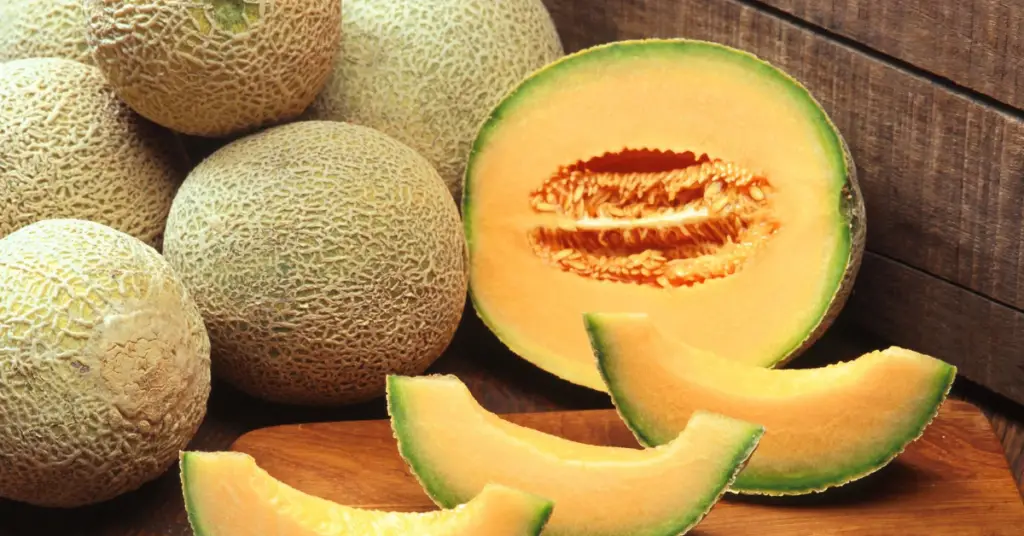
Yes, dogs can safely eat cantaloupe, also known as rockmelon or sweet melon. Cantaloupe is an excellent source of water and fiber, is high in nutrients, and is low in calories. However, because to its high sugar content, it should be used in moderation, especially by overweight or diabetic dogs.
9. Cranberries
Yes, dogs can eat a small quantity of cranberries without any issues. Like any treat, giving cranberries to dogs should be done sparingly since an excessive amount might upset their stomach. Besides fresh cranberries, you can also opt to feed dried cranberries to your dog. Do note that despite your best intentions, your dog may not like this sour treat!
Also Read: Can Dogs Eat Guava?
10. Cucumbers
Yes, your dog can enjoy cucumbers safely. Cucumbers are especially good for overweight dogs since they contain nearly no carbohydrates, lipids, or oils and have the ability to enhance energy levels. In addition, cucumbers contain high levels of potassium, copper, magnesium, biotin, and vitamins K, C, and B1.
11. Green beans
Yes, dogs can eat green beans. All forms of green beans, as long as they are simple, are fine for dogs to consume, whether they are chopped, steamed, raw, or canned. Green beans are low in calories, high in fiber, and packed with essential vitamins and minerals. If you’re giving your dog canned green beans, use low- or no-salt varieties.
12. Mango
Yes, mango flesh and skin can be consumed by dogs but not the mango pit. Mangoes are a healthy treat that contains loads of vitamins A, B6, C, and E, potassium and beta- and alpha-carotene. Just keep in mind that, mango pits can lodge in your dog’s digestive system and provide a major choking risk. A mango’s pit also has trace quantities of cyanide in it. Therefore, do not feed mango pits to your dog.
13. Oranges
Yes, dogs can consume oranges safely. In fact, oranges are a great source of vitamin C, potassium, and fiber. To feed your dog oranges, it is best to remove the orange peel and seeds to prevent any indigestion. Some dogs may get stomach discomfort from oranges’ natural sugar content and acidity. To prevent this, you should only give your dog a little slice of orange the first time and observe how he reacts to it.
14. Peas
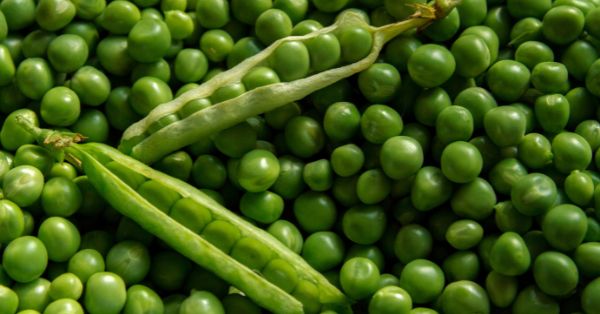
Yes, dogs can eat peas safely. Dogs can occasionally find green peas, snow peas, sugar snap peas, garden peas, or English peas in their dish. In addition to being high in fiber and protein, peas also contain several vitamins and minerals. Fresh or frozen peas can be given to your dog, however canned peas with extra salt should be avoided.
15. Peaches
Yes, dogs can eat peaches without getting sick. Peaches are an excellent source of fiber and vitamin A in little amounts, and they can even help fight infections. However, much like cherries, the pit of a peach contains cyanide. Fresh peaches may be a nice summer treat as long as you properly cut around the pit beforehand.
16. Pears
Yes, dogs can eat pears. Because they are rich in fiber, vitamins C and K, and copper, pears make a terrific snack. According to some research, eating the fruit can cut your chance of suffering a stroke in half. Just remember to chop pears into bite-sized pieces and to first remove the pit and seeds because the seeds do contain levels of cyanide. Avoid pear cans containing sweet syrups.
17. Pineapple
Yes, dogs may safely eat pineapple. The tropical fruit is rich in fiber, vitamins, and minerals. Additionally, it has bromelain, an enzyme that facilitates protein absorption in dogs. If the prickly outer peel and crown are first removed, a few slices of pineapple make an excellent sweet treat for dogs.
18 Pumpkin
Yes, dogs can eat pumpkin. It contains fiber which is beneficial for digestion and may treat both diarrhea and constipation in ways that benefit your dog’s skin and hair. However, an excessive amount of fiber in a dog’s diet might upset his stomach and prevent him from absorbing other nutrients from his meal.
Also Read: Can Dogs Eat Eggplants?
19. Raspberries
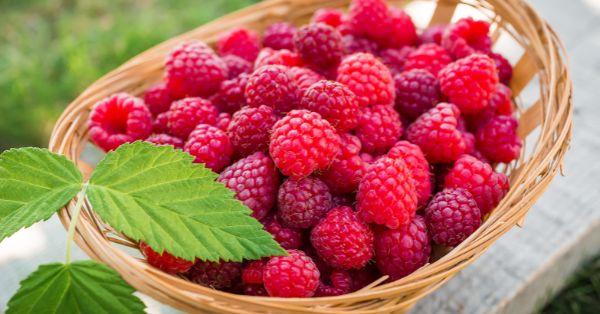
Yes, dogs can eat raspberries in moderate quantities. They are abundant in fiber, manganese, and vitamin C yet low in sugar and calories, making it a healthy snack for your dog. Raspberries may also offer anti-inflammatory properties that can benefit aging joints, making them particularly beneficial for older dogs. Even so, your dog should only consume up to a cup of raspberries at a time because they do contain trace quantities of xylitol. Don’t be alarmed though—to receive a fatal dose, a 22-pound dog would have to eat 32 cups of raspberries.
20. Spinach
Yes, dogs can eat spinach in small quantities. Spinach contains oxalic acid, which inhibits the body’s capacity to absorb calcium and can cause kidney damage, is present in high concentrations in spinach. Although it would probably take a lot of spinach for your dog to have this issue, it could be advisable to avoid this vegetable altogether.
21. Strawberries
Yes, strawberries are eaten by dogs. They are a great healthy snack due to its high fiber and vitamin C content. In addition, they also include an enzyme that, when consumed by your dog, can assist in whitening his or her teeth. However, strawberries contain sugar, which may cause an upset stomach if your dog consumes too many of it.
22. Watermelon
Yes, dogs can consume watermelon. Watermelon flesh is okay for dogs, but it’s vital to remove the peel and seeds first as they might result in intestinal obstruction. It is rich in potassium, vitamins A, B-6, and C. As 92 percent of a watermelon is water, it’s a great way to help keep your dog hydrated during the scorching summer months.
Fruits and Vegetables Dogs Can’t Eat
1. Avocado
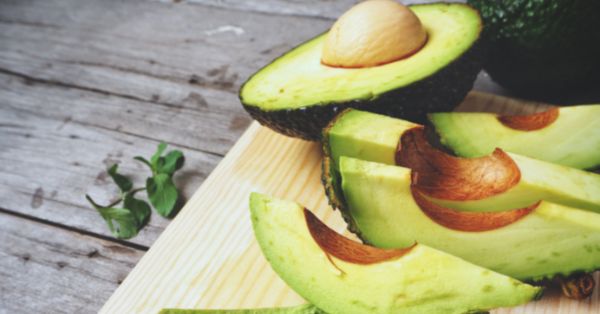
No, dogs shouldn’t eat avocado. Avocados contain the poison persin in the pit, skin and leaves of the avocado, which frequently causes dogs to vomit and have diarrhea. Some people think that it is okay to feed the flesh of avocados to their dogs since it is lower in persin content. However, it is still not recommended as the amount of persin is still too much for dogs to manage.
Also Read: 30 Worst Foods Dogs Should Never Eat!
2. Asparagus
Dogs shouldn’t eat asparagus. Although offering asparagus to dogs isn’t strictly harmful, it serves no actual purpose. Asparagus is too harsh to be consumed fresh, and by the time it is cooked to a point where it is soft enough for dogs to eat, it has lost most of its nutritional value. If you truly want to share a vegetable, it’s generally wiser to do something more useful.
3. Cherries
No,dogs shouldn’t eat cherries. Cherry plants, with the exception of the fleshy region surrounding the seed, are toxic to dogs because they contain cyanide. Your dog’s blood cells don’t get enough oxygen because cyanide obstructs the transfer of cellular oxygen. If your dog eats cherries, keep an eye out for cyanide poisoning signs including dilated pupils, difficulty breathing, and red gums.
4. Grapes
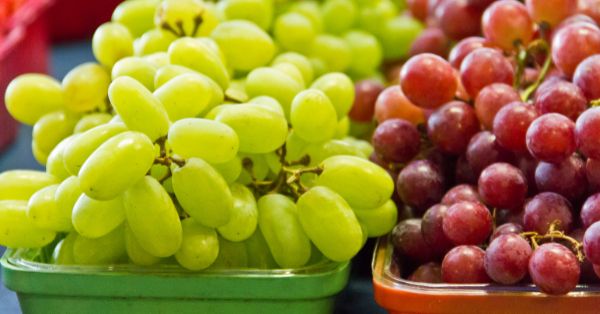
No, grapes should never be eaten by dogs. This fruit can cause abrupt renal failure and possibly death if consumed. Unknown toxin in grapes prevents dogs from metabolizing their tannins, flavonoids, and monosaccharides. This could be the main factor causing grape poisoning in dogs. Always keep in mind that this fruit is poisonous to dogs.
5. Tomatoes
No, dogs should avoid tomatoes. While tomatoes’ mature fruit is typically regarded as healthy for canines, the plant’s green parts are poisonous due to a compound called solanine. To be cautious, it’s advisable to avoid tomatoes altogether even though a dog would need to consume a significant portion of the tomato plant to become ill.
6. Mushrooms
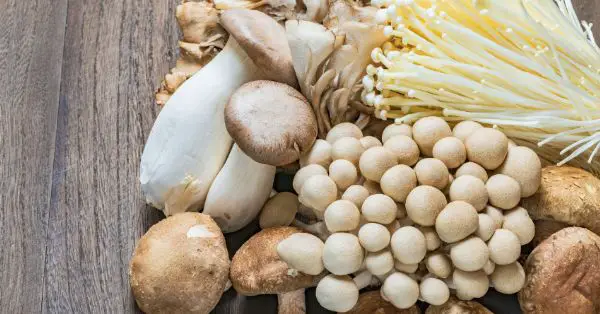
No, dogs should avoid mushrooms. Dogs may be poisoned from wild mushrooms. Only 50–100 of the 50,000 types of mushrooms that exist in the globe are toxic, but those that are can seriously harm or even kill your dog. White washed store mushrooms may be acceptable, but it’s best to be safe than sorry and completely avoid giving fungus to your dogs.
7. Onions
No, dogs should never eat onions. Allium plants, which include onions, leeks, and chives, are deadly to the majority of pets, especially cats. Red blood cell rupture, nausea, vomiting, diarrhea, and stomach pain can all result from giving your dog onions. Certain breeds like the Akitas and Shiba Inus are more susceptible to the dangers of consuming onions.

